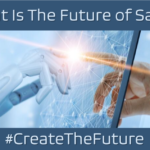Learn about Machine Learning and Why Does It Matter
Machine learning is a revolutionary field that has transformed the way we interact with technology, enabling computers to learn and make predictions without explicit programming. With its ability to analyze vast amounts of data and extract valuable insights, machine learning has become a driving force behind many innovations in various industries. In this blog post, we will demystify machine learning, explore its underlying principles, and shed light on why it matters in today’s digital age.
- Understanding Machine Learning: Machine learning is a subset of artificial intelligence (AI) that focuses on developing algorithms and models that enable computers to learn from data and make predictions or decisions without being explicitly programmed. It involves the creation and training of computational models that can identify patterns, extract meaningful information, and improve their performance over time through iterative learning.
- Key Concepts in Machine Learning: a. Data: Machine learning algorithms rely on vast amounts of data to learn and make accurate predictions. This data can be structured (e.g., databases, spreadsheets) or unstructured (e.g., text, images, audio). The quality, relevance, and diversity of data play a crucial role in the performance of machine learning models.
b. Training: Machine learning models are trained using labeled data, where the input data is paired with the desired output or target. During the training process, the model learns patterns and relationships in the data to make predictions or classifications.
c. Algorithms: Machine learning employs a range of algorithms to process data and build models. These algorithms can be categorized into supervised learning (using labeled data), unsupervised learning (finding patterns in unlabeled data), and reinforcement learning (learning through trial and error based on feedback).
d. Feature Extraction: Feature extraction involves identifying relevant attributes or features from raw data that are crucial for making predictions. This process simplifies the data representation and enhances the model’s ability to find meaningful patterns.
e. Model Evaluation: After training, machine learning models are evaluated to assess their performance and generalizability. Various metrics, such as accuracy, precision, recall, and F1 score, are used to measure the model’s effectiveness.
- Why Machine Learning Matters: a. Automation and Efficiency: Machine learning automates complex tasks and processes, reducing human effort and improving efficiency. From automating customer service interactions to streamlining supply chain management, machine learning empowers businesses to automate repetitive tasks and allocate resources more effectively.
b. Advanced Data Analysis: Machine learning algorithms can process and analyze vast amounts of data in a short time, uncovering valuable insights and patterns that may go unnoticed by humans. This enables businesses to make data-driven decisions, identify trends, and gain a competitive edge.
c. Personalization and Recommendation Systems: Machine learning powers recommendation systems that personalize user experiences. Whether it’s suggesting relevant products, curating content, or providing personalized recommendations, machine learning algorithms can tailor offerings to individual preferences and behavior.
d. Improved Healthcare and Diagnostics: Machine learning has immense potential in the healthcare industry, aiding in disease diagnosis, treatment planning, drug discovery, and medical image analysis. By analyzing patient data and medical records, machine learning models can assist healthcare professionals in making more accurate diagnoses and treatment decisions.
e. Predictive Analytics: Machine learning enables predictive analytics, helping businesses forecast future trends, customer behavior, and market dynamics. This predictive power assists in demand forecasting, risk assessment, fraud detection, and proactive decision-making.
f. Autonomous Systems: Machine learning is essential for developing autonomous systems, such as self-driving cars and drones. These systems leverage machine learning algorithms to perceive and interpret the environment, make decisions in real-time, and adapt to changing conditions.


































